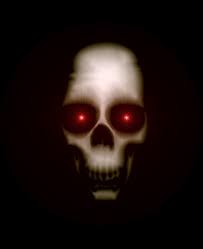Working a Spell at Boggart Hole Clough March 1, 2022
Author: Beach Combing | in : Modern , trackbackBoggart Hole Clough, the subject of this month’s Boggart and Banshee podcast, is a large park to the north of Manchester. Now it is well within the conurbation (the modern park is discussed in my new book): once it was an obscure, haunted (as the name suggests) ravine between two parishes. In the podcast we spend some time on a magic ceremony carried out there in the early nineteenth century. Samuel Bamford (who records the spell) had heard the description from his friend Plant: they had spent time together in prison after meddling in Chartism. Plant and two friends, Chirrup and Bangle, had gone to collect fern seeds on St John’s Eve to work love magic on Bangle’s true love. Things, of course, ended badly.
A little before midnight, on the eve of Saint John, Plant, Chirrup, and Bangle were at the whale-jaw gate… [within the clough] and, having slightly scanned each other, they proceeded, without speaking, until they had crossed the brook at a stepping-place opposite the old Feyrin-ho’.
The first word spoken was, ‘What hast thou?’
‘Mine is breawn an’ roof,’ said Plant, exhibiting a brown earthen dish. ‘What hast thou?’ he then asked.
‘Mine is breet enough,’ said Chirrup, showing a pewter platter; and continued, ‘What hast thou?’
‘Teed wi’ web an’ woof// Mine is deep enough,’ said Bangle, displaying a musty, dun skull, with the cap sawn off above the eyes, and left flapping like a lid, by a piece of tanned scalp, which still adhered. The interior cavities had also been stuffed with moss and lined with clay, kneaded with blood from human veins; and the youth had secured the skull to his shoulders by a twine of three strands of unbleached flax, of undyed wool, and of woman’s hair; from which also depended a raven black tress, which a wily crone had procured from the maid he sought to obtain.
‘That will do,’ said a [spirit] voice, in a half whisper, from one of the low bushes they were passing. Plant and Chirrup paused; but Bangle, who had evidently his heart on the accomplishment of the undertaking, said, ‘Forward, if we turn now a spirit hath spoken, we are lost. Come on,’ and they went forward.
The trio arrive at the place the fern grew ‘stiff and erect in a gleamy light’.
‘Is it deep neet?’ said Bangle.
‘It is,’ said Plant.
‘The star that bids the shepherd fold,
Now the top of heaven doth hold.’
And they drew near. All was still and motionless.
Plant knelt on one knee and held his dish under the fern.
Chirrup held his broad plate next below, and Bangle knelt, and rested the skull directly under both, on the green sod, the lid being up.
Plant said: ‘Good Saint John, this seed we crave,
We have dared; shall we have?’
Here things get extremely unpleasant.
A [spirit] voice responded:
‘Now the moon is downward starting.
Moon and stars are all departing;
Quick, quick; shake, shake;
He whose heart shall soonest break
Let him take.’
They looked, and perceived by a glance that a venerable form, in a loose robe, was near them. Darkness came down like a swoop. The fern was shaken, the upper dish flew into pieces, the pewter one melted, the skull emitted a cry, and eyes glared in its sockets; lights broke, beautiful children were seen walking in their holiday clothes, and graceful female forms sung mournful and enchanting airs. The men stood terrified and fascinated; and Bangle, gazing, bade ‘God bless ’em.’
I read this inadvertent naming of the Lord – a common folklore motif – to be the reason that the spell goes wrong.
A crash followed, as if the whole of the timber in the kloof was being splintered and torn up, strange and horrid forms appeared from the thickets, the men ran as if sped on the wind – they separated and lost each other. Plant ran towards the old house, and there, leaping the brook, he cast a glance behind him, and saw terrific shapes, some beastly, some part human, and some hellish, gnashing their teeth, and howling and uttering the most fearful and mournful tones, as if wishful to follow him, but unable to do so.
Plant had, to his great good fortune, crossed a stream, preventing the spirits from following him.
The aftermath? Chirrup reportedly went mad. Plant ended up in prison. Bangle, meanwhile, kept the seed and buried them at the crossroads as he had been instructed: ‘He then carried the spell out, and his proud love stood one night by his bedside in tears. But he had done too much for human nature; in three months after she followed his corpse, a real mourner, to the grave!’
The visionary passage is especially fine. I’m fascinated by ‘beautiful children were seen walking in their holiday clothes, and graceful female forms sung mournful and enchanting airs’. The clough became a place for holiday clothes and Sunday School picnics, but a generation after Bamford was writing! As to ‘graceful females forms sung mournful and enchanting airs’ not sure what is being conjured up there: any ideas drbeachcombing AT gmail DOT com.



